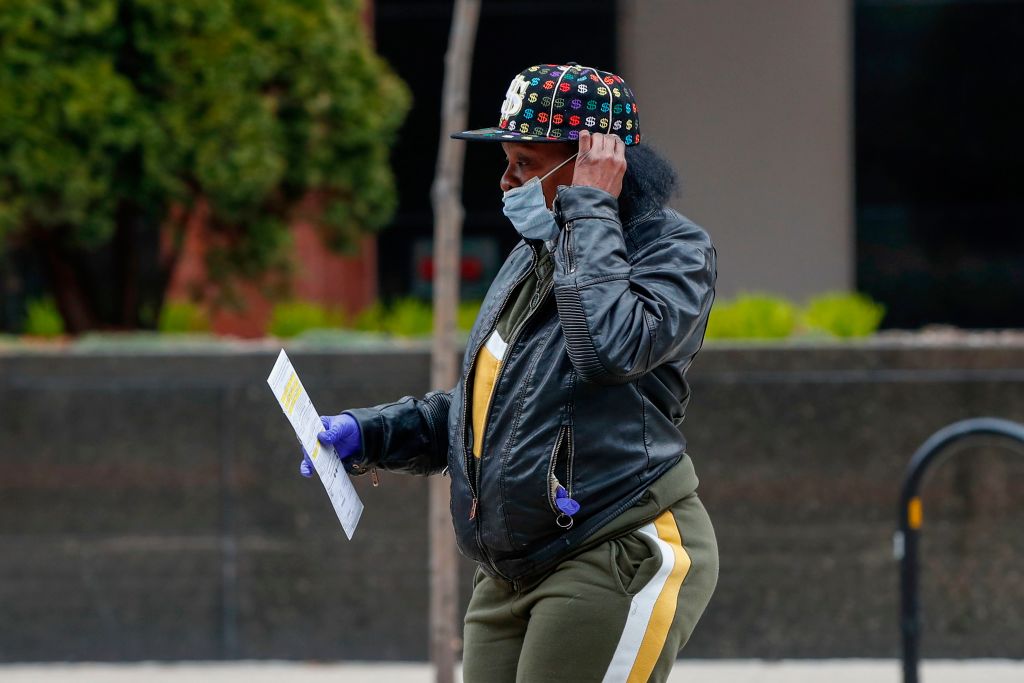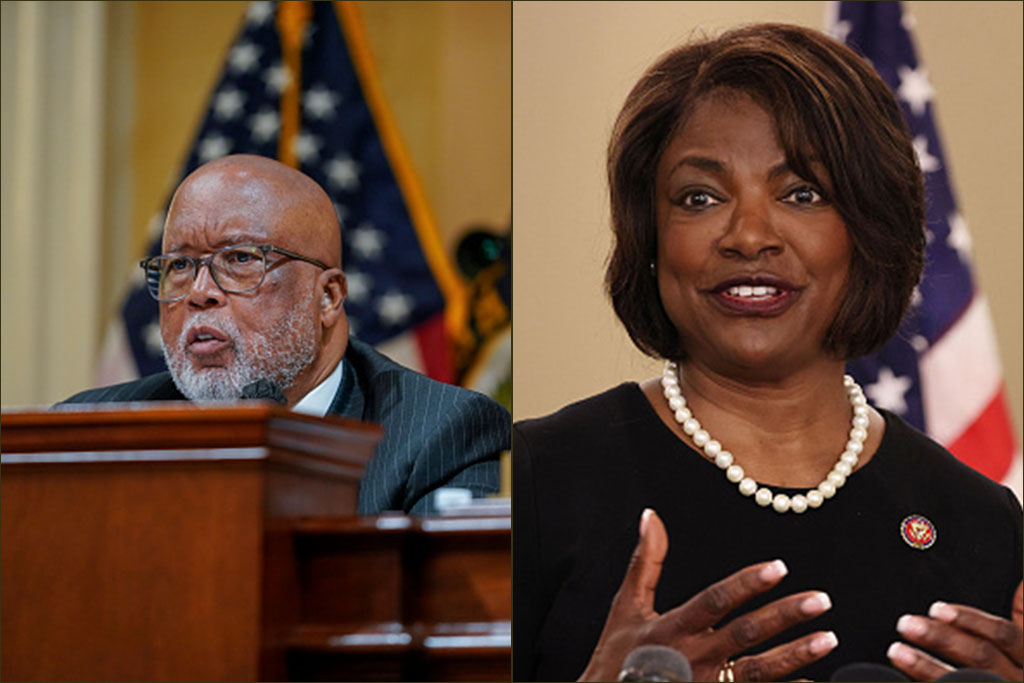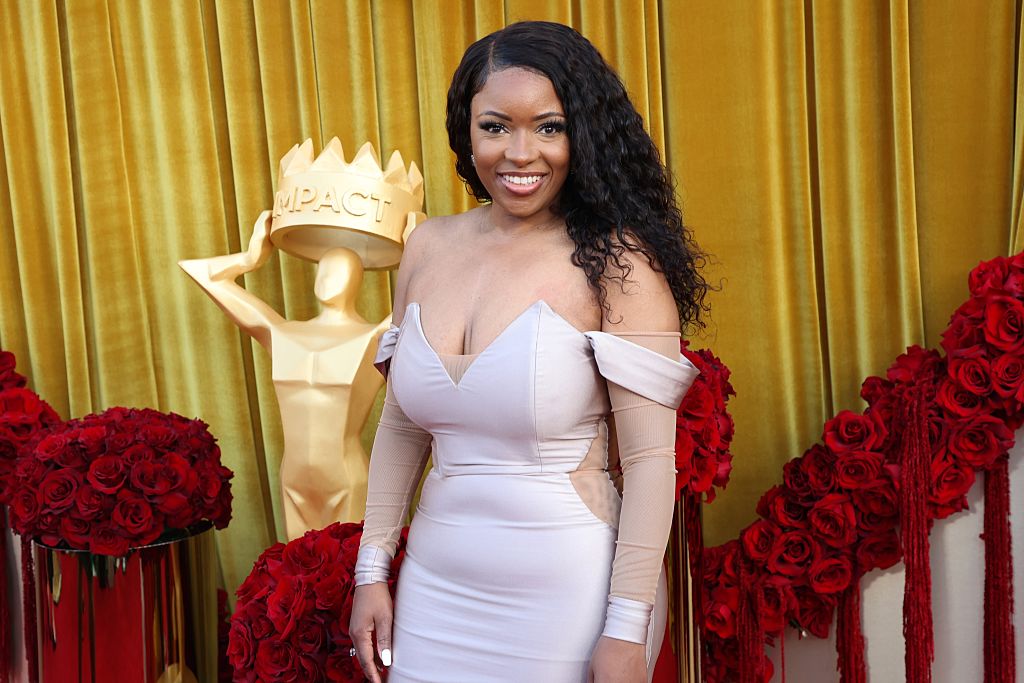Wisconsin Primary Endangers Black Voters More Casting In-Person Ballots
How Wisconsin’s In-Person Primary Especially Endangers Or Silences State’s Black Voters, Or Both

Pictured: A woman leaves the Frank P. Zeidler Municipal Building after not being able to cast her ballot at the already closed drop-off site in Milwaukee, Wisconsin, on April 6, 2020. | Source: KAMIL KRZACZYNSKI / Getty
The decision to hold in-person voting during Wisconsin’s primary on Tuesday could have a devastatingly dangerous effect on Black voters who decide to participate amid the coronavirus pandemic that has disproportionately affected the state’s Black residents.
The move by the Wisconsin Supreme Court to block Gov. Tony Evers’s order against in-person voting is all but tantamount to an ultimatum to Black voters: either they can go to a significantly reduced number of polling places in the state and potentially be exposed to the infectious COVID-19 disease that’s killed more Black people in the state than anyone else; or they can decide to stay home to avoid possible exposure to the coronavirus and effectively be left out of the Democratic process. Or, both things could happen considering that there is what the Washington Post described as “a torrent of confusion across Wisconsin” after the state has sent voters mixed messages about exactly what to expect on Tuesday.
The situation was especially dire in Milwaukee, where most of the people who have not just contracted the coronavirus but also died of complications from it have been Black. That harsh truth was compounded by the fact that the city that is 39 percent Black has had the number of its polling placed significantly reduced from 180 to just five for Tuesday’s primary. There is also a decided shortage of polling workers, a factor that could contribute to larger crowds at polling places amid health officials ordering social distancing of at least six feet in between people as a means to prevent person-to-person coronavirus transmissions.
To be clear, the situation in Wisconsin is not just affecting Black voters. However, the combination of the aforementioned factors places Black voters in particular in a precarious position that all but forces them — a group that has proven to be more susceptible to the coronavirus — to decide between braving long lines and crowds alongside potentially infected Wisconsinites or abstaining from participating in the election altogether. There is no middle ground as the latter would not just silence these Black voters during a primary season where an emphasis has been placed on securing support from the Black community, but it could also have implications for the 2020 general election in a state that voted Republican four years ago.
The decision by Wisconsin’s supreme court to forge ahead with in-person voting also undid the previous ruling to extend absentee ballot voting by a week. That means any voter who was planning on submitting an absentee ballot needs to have it postmarked by Tuesday, which could be a problem for those who still have not received their absentee ballots.
“People have bled, fought, and died for the right to vote in this country,” Gov. vers said in a statement on Monday. “But tomorrow in Wisconsin, thousands will wake up and have to choose between exercising their right to vote and staying healthy and safe.”
In Milwaukee County, home to the eponymous city that is also the most segregated in the United States, the first eight people to die of complications from COVID-19 were African American, further shattering the misguided misconception that Black people cannot contract the coronavirus. That number has since grown. And while that death toll was comparatively low to those in and closer to major affected areas like New York City and The Bay Area, it was still a troubling statistic in a state with at least 2,440 confirmed coronavirus cases and at least 77 deaths from it.
The reason for the racial disparity in coronavirus deaths in Wisconsin and especially Milwaukee also was not clear. But there were suspicions that not just the aforementioned segregation but also a lack of ready access to resources necessary during a global pandemic the likes of which no one alive has ever experienced.
“I wish I could say I was surprised or shocked by that,” Joshua Garoon, a sociology professor at the University of Wisconsin-Madison who studies public health, told the Associated Press. “But it’s precisely, given the situation in Wisconsin, what I would expect to see. … All else is not equal, especially in a city like Milwaukee.”
According to the most recent Census statistics, 27 percent of Milwaukee County’s 946,000-person population was made up of Black people. In Wisconsin, home to 5.8 million people, Black people account for just 7 percent of the state’s residents.
A group of Black leaders in Milwaukee has launched a campaign centered on African American communities that aims to increase awareness of the coronavirus, according to the Milwaukee Journal Sentinel. It appeared that most of the African Americans who tested positive for the coronavirus lived in the city’s North End — which makes sense considering the segregated the city is.
“The deadly coronavirus (COVID-19) is spreading fast among Milwaukee’s African American population,” Milwaukee Alderman Russell W. Stamper II said in a statement Thursday. “But those deaths — and a strict citywide Stay-at-Home order — don’t seem to be getting the attention of enough people in the community.”
Testing has contributed to the racial disparity, according to the Journal Sentinel. Out of all of the testing conducted for the month except for Friday, “about 22% were for people identifying as white, about 27% were people identifying as black and about 50% are people who didn’t indicate a race or ethnicity.”
The coronavirus has been the latest health challenge facing Black people in Milwaukee, the city’s Health Commissioner Jeanette Kowalik told the Journal Sentinel while alluding to the city’s segregation problem.
“Looking at the maps of Milwaukee, and looking where people live, looking at the history of redlining and segregation and how that crosses over into today,; when we’re talking about various health outcomes like infant mortality, childhood lead poisoning, you see very similar distributions,” Kowalik said.
SEE ALSO:
5 Reasons Why Black People Are Disproportionately Contracting The Coronavirus
U.S. Accused Of Stealing Ventilators From Barbados As Coronavirus Spreads in The Caribbean


















